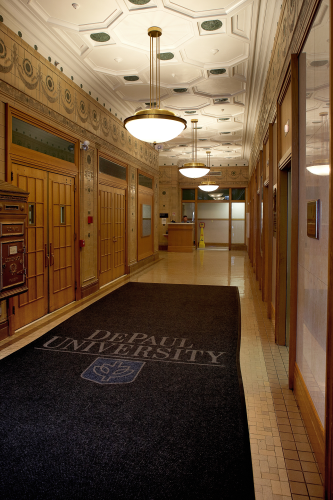Sep 30, 2009
DePaul University’s Family Law Center To Survey Additional Ex-Pimps And Madams To Expand Its Study of Prostitution in Chicago
DePaul University’s Family Law Center To Survey Additional Ex-Pimps And Madams To Expand Its Study of Prostitution in Chicago
The Schiller DuCanto & Fleck Family Law Center at the DePaul University College of Law will expand its investigation into prostitution in the Chicago metropolitan area by interviewing up to 20 additional ex-pimps and madams to gain insight into how the sex trade in Chicago operates.
The new research, combined with the center’s past findings that were based on similar interviews, can help law enforcement curb the demand for sexual services by arresting customers and aiding young women. The center will release results from the expanded study in 2010.
“This research presents important information about the role pimps and traffickers play in Chicago’s sex trade industry,” said Jody Raphael, a senior research fellow at the center. “Our initial study has been a valuable resource for law enforcement, and we hope the additional information we discover by conducting more interviews will go far to help authorities eliminate both the pimps and the organizations that exploit needy young girls.”
The additional research will be based on interviews with former pimps and madams who will be identified with the help of Brenda Myers-Powell, a survivor of pimp-controlled prostitution for more than 25 years. Myers-Powell was instrumental in the center’s initial report, “Interviews with Five Ex- Pimps in Chicago,” which was released in April 2009. Former pimps and madams willing to be candid about their experiences will be asked intimate details about Chicago’s sex trade.
A grant from the Chicago Alliance Against Sexual Exploitation (CAASE) will fuel the additional research. Its methodology will mirror much of the first study’s, which was limited to interviews with five ex-pimps and madams who responded to a 90-question survey. Each participant fielded probing questions about issues such as their early family circumstances, how they became involved in Chicago’s sex trade industry, what their lives were like in the business, how the business was organized, how much money they earned, their dealings with law enforcement, and why they got out of the business.
The initial study found:
· An estimated 40 percent of the ex-pimps were mere middlemen in larger organizations, including gangs, and their arrest would not shut down the operation.
· Pimping cannot be eliminated unless demand is curbed.
· Like those involved in the drug trade, ex-pimps came from low-income households, some of which were involved in prostitution. Many had experienced abuse themselves and had sold sex before becoming pimps.
· Four-fifths of the sample said there were persons in the neighborhood who were involved in the sex trade industry, including relatives, neighbors and friends.
“Our earlier research uncovered some very interesting data about how the sex trade operates in Chicago,” said Raphael. “With additional resources, we can poll a wider sample group which will offer us even greater insight into how the prostitution industry works in Chicago. If our findings can help us learn more about how so many young women become victims, then law enforcement will have better tools to use in its efforts to save them.”
Established in 2000, DePaul’s Schiller, DuCanto & Fleck Family Law Center focuses on teaching, legal reform and community service in all areas of family law, including child protection, juvenile justice, marriage, domestic violence, divorce and elder law. It also gives students opportunities for hands-on legal experience through fellowships, internships and community service projects. For more information about the center visit its Web site at: www.law.depaul.edu/centers_institutes/family_law/.

